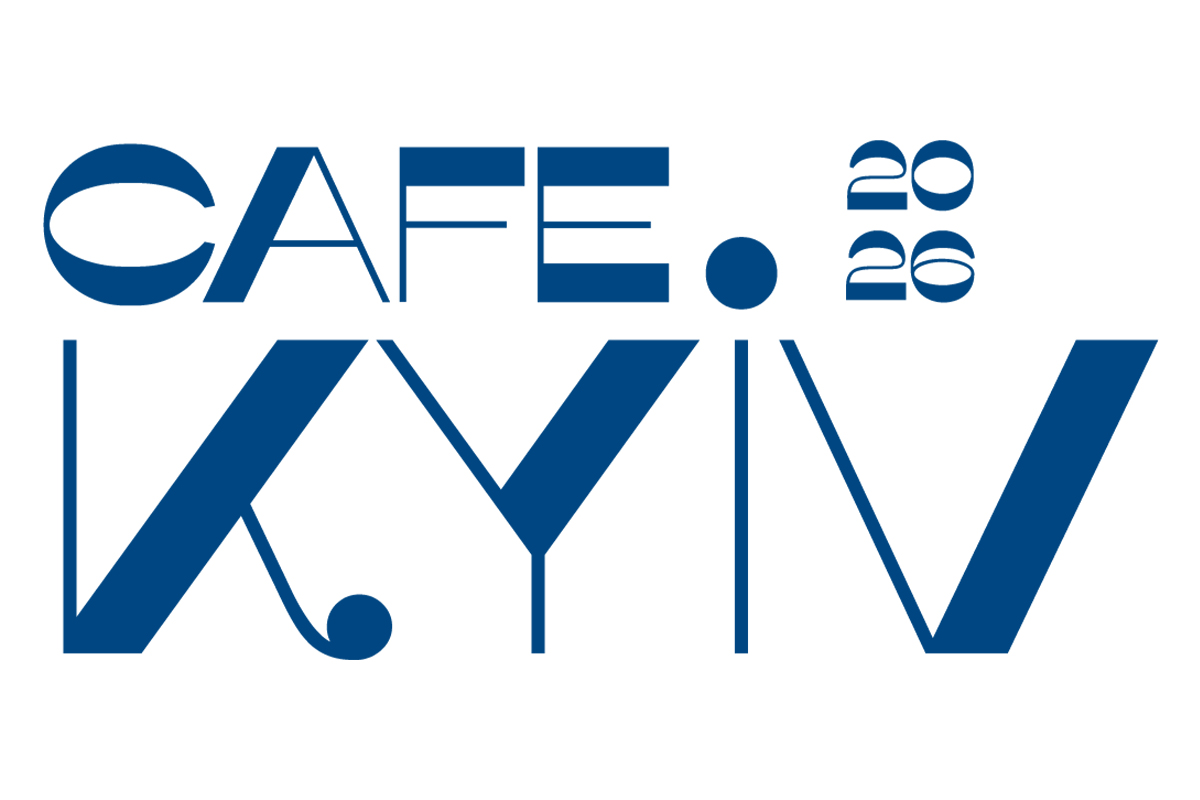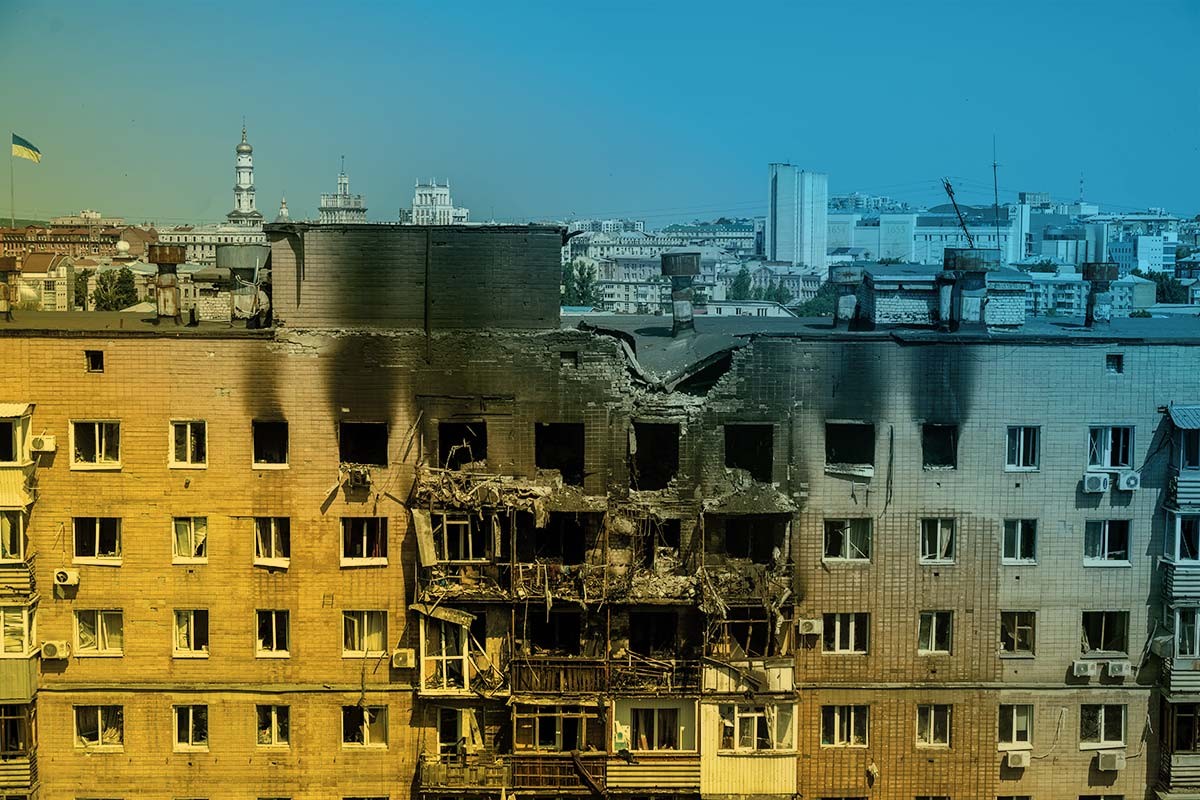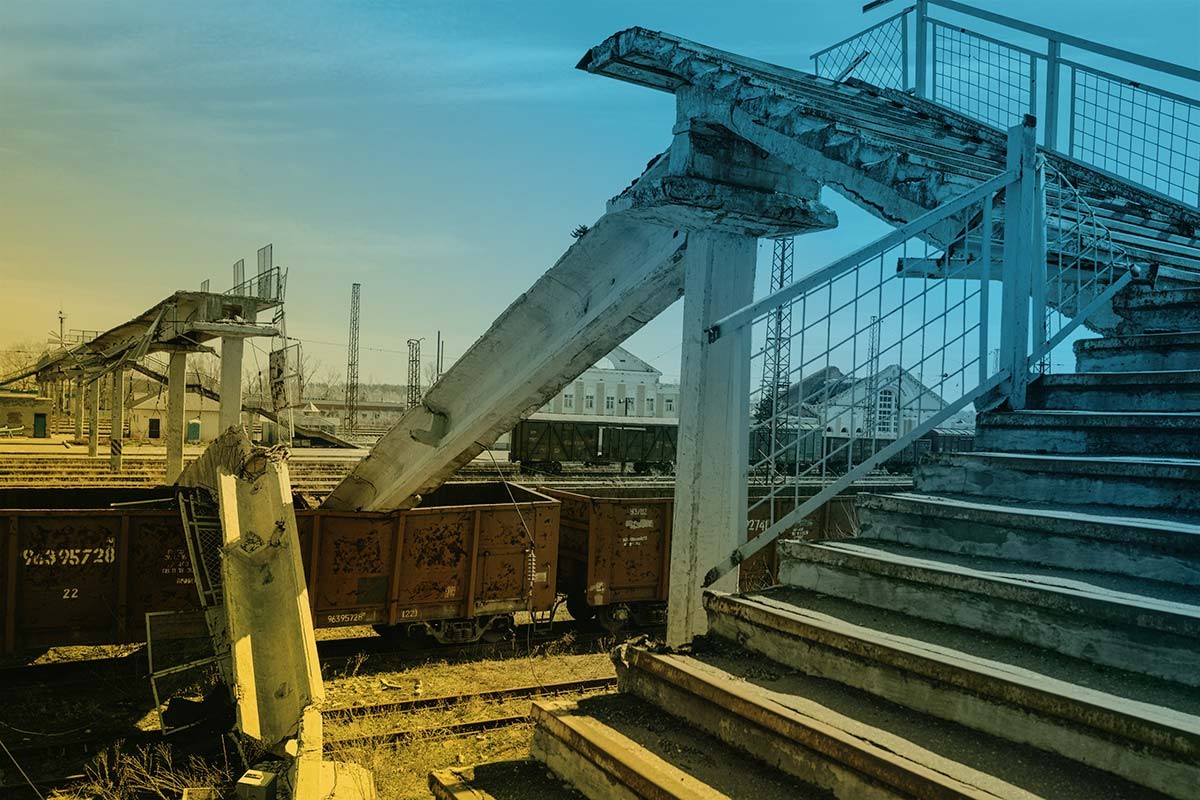Whither Russia? A defeat in Ukraine is a chance for renewal

It is time to think about a Russia after Putin. If defeated in Ukraine, conditions in the country will also change. Whether for the better or the worse is an open question. Without a departure from the imperial delusion, Russia will remain in the eternal vicious circle of war politics and authoritarian rule.
This year, Memorial, Russia’s oldest and most important human rights organization, finally received the long overdue Nobel Peace Prize. The satisfaction is mixed with bitterness. The award comes at a time when Russia has turned into a sinister war dictatorship at the speed of light. Memorial has been dissolved by court order, its buildings confiscated, its accounts frozen. What a collapse from the hopeful beginning of 1987, in the period of glasnost and perestroika. The Soviet Union still existed, but it was opening up to come to terms with the past and think about the future. Memorial built a bridge between the old Soviet dissidents and a new generation of historians and human rights activists. The first chairman was the legendary Andrei Sakharov.
I first came into contact with Memorial in 1997 through the Heinrich Böll-Foundation, which I headed at the time. This turned into 25 years of cordial cooperation. We talked our heads off and made plans. There was one common expectation above all: democracy in Russia is possible, the path to a common Europe is open. The contrast with today could hardly be greater.
Putin’s “managed democracy” was a ruse
Disillusionment did not come overnight. By 2005 at the latest, the beginning of Putin’s second term, Russia’s liberal spirits were once again on the defensive. Putin’s “managed democracy” was only a cover for authoritarian restoration. Members of the security services occupied key positions in the state and the economy, and the return to a state-controlled economy was in full swing. A key event was the arrest of Mikhail Khodorkovsky and the break-up of his Yukos corporation in 2003. Anyone who was too independent was eliminated or forced to kowtow.
Since then, it has been one blow after the other: power was centralized, the party system and parliament were brought into line, as were the media and the judiciary. The remaining freedoms in civil society, in culture and universities were curbed with measures like the “foreign agents” laws, internet censorship, the persecution of the opposition, the treatment of criticism of the regime as a criminal offence and the abuse of the “Great Patriotic War” as a key source of legitimacy for the Putin regime.
The growing internal repression was followed by a turn to external aggression. The intervention in Georgia of 2008 was a warning signal that the West did not want to hear. This was followed by the first Ukraine war in 2014, the annexation of Crimea, the military intervention in Syria, in many ways a preliminary exercise for the second Ukraine war. Only now does this open the eyes of those who did not want to see the direction in which Russia was developing under Putin. Well-founded studies describe the “Putin system” as a combination of a mafia-style kleptocracy, whose elite enriches itself without limits, and a secret service regime that perceives the disintegration of the Soviet Union as a moment of the worst humiliation. The goal is the empire’s restoration.
The uninhibited violence of Russian warfare, the hate propaganda in the state media and the ruthless suppression of all internal opposition raises unpleasant questions. What kind of Russia are we dealing with today and in the foreseeable future? Where does the frightening lack of empathy with Ukraine come from, although eleven to twelve million Russian families have family ties with their supposedly “brotherly country”? Was it only unfortunate circumstances that caused the country to turn back towards authoritarianism and imperial power politics after the collapse of the USSR? Or does a structural legacy stand in the way of all attempts at democratization?
The answer to these questions is politically relevant. In recent weeks, the scenario of a Russian defeat in Ukraine has become a possibility — provided the West is not intimidated by Putin’s threatening nuclear gestures. Most experts agree that Putin would not survive long after a humiliating withdrawal of Russian troops. But what then?
Hardly anyone dares to make predictions about a possible power change in Moscow. The internal balance of power is even less transparent to outsiders than it was in the final phase of the Soviet Union. The only thing that is clear is that Putin still has absolute power. How a change could take place and who could succeed the president remains speculative.
The three basic scenarios are:
- Putin is replaced by a figure from the current inner circle of power who promises continuity and stability.
- The military and political “humiliation” in Ukraine leads to a chauvinist radicalization of the regime. This would mean even harsher repression internally, tough confrontation with the West and increased aggressiveness externally.
- After an unstable transition, new elections are held. The call for a new beginning brings a united opposition into government. As of today, Alexei Navalny would be their most attractive candidate.
Even this best-case scenario would by no means guarantee a rapid transition to a democratic constitutional state. The democratic opposition in Russia is too atomized, state institutions are too rotten, the potential for violence is too great, and cynicism, indifference and authoritarian attitudes are too widespread in Russian society. Any new government will face the challenges of an economic model completely geared to the export of fossil fuels and endemic corruption. Market-based reforms have been discredited since the 1990s social crash. Russia is facing economically difficult years ahead.
How much support would a new attempt at democracy have among the population? The current information reaching us from Russia is contradictory. Independent observers estimate that about 15 to 20 percent oppose the war against Ukraine, even if relatively few openly oppose it. This roughly corresponds to the size of the liberal-democratic milieu that polls have identified. It is concentrated above all in the big cities.
Opposed to it is a milieu at least as large that fully supports the war or even pushes for its intensification. This section of society clings to Great Russian imperialist and stridently anti-liberal ideas. In between, there seems to be a broad spectrum of people who legitimize the war or are indifferent. The majority of Russian society is depoliticized, passive and focused on somehow managing its own life.
Russia’s farewell to empire
Since the arbitrary forced recruitment of conscripted men, there are growing signs of disillusionment. Hundreds of thousands have fled to neighbouring countries to avoid conscription. This is not a sign of democratic sentiment but shows that the jingoism in state media is not catching on in large sections of society.
Russia is at a historic crossroads. What is at stake is nothing more and nothing less than a farewell to empire, a second phase of de-colonisation after the implosion of the Soviet Union. Why should Russia not be expected to accept what Germany, the Habsburg Empire, France and Britain had to put up with — in the end to their good fortune? The Kremlin must give up its claim to power over the post-Soviet space. Only then can Russia become a good neighbour. To what extent the process of de-colonisation will also encompass the country’s inner periphery – like the North Caucasus — is an open question.
The alternative would be a slide into even shriller great power chauvinism, accompanied by aggressive paranoia: all against us, us against all, especially the West. The invasion of Ukraine is along these lines. As long as Russia clings to the imperial delusion, there will be no stable peace in Europe — and no chance for internal democratization.
Russia’s defeat on Ukraine is a necessary but not sufficient condition for renewal. It also requires a painful confrontation with its own history of violence, both internally and externally, the development of a civic consciousness of rights and duties, respect for the law, and profound reforms of the prison system and the army as hotbeds of violence. This process will take time, and it can only be influenced from the outside to a limited extent.
What we can do is, first of all, provide decisive political, military and financial support to Ukraine in defending its independence and liberating its territory. Secondly, Russia’s democratic forces need our solidarity in building exile structures. This includes supporting Russian media in Europe, which form a democratic counter-public to Putin’s propaganda apparatus.
The EU should promote media projects that also reach the Russian-speaking population in neighbouring countries. Third, as long as Russia continues its authoritarian and neo-imperial course, we cannot avoid a determined policy of containment and deterrence. This requires the strengthening of common European defence within the framework of NATO — including Ukraine.
At present, the prospects for a political-moral renewal of Russia seem rather bleak. However, it is in the nature of autocratic systems that change is abrupt rather than linear. Military defeats have always been the mother of reforms and revolutions in Russia.
The German original of this text appeared as an Op-Ed in the weekly Der Spiegel on 12 October.
![]()
Did you like thike this article? If yes, you can support the independent editorial work and journalism of LibMod via a simple donation tool.
Donate via PayPal
![]()
We are recognized as a non-profit organization, accordingly donations are tax deductible. For a donation receipt (necessary for an amount over 200 EUR), please send your address data to finanzen@libmod.de
Related topics
Newsletter bestellen
Stay tuned with our regular newsletter about all our relevant subjects.






